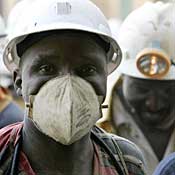By: Snehal Manjreka

China is continuing to be a mystery to global investors as it has always been. Array of debt fiascos in the EU, US and now Japan has raised global volatility and thus nullified the imminent possibilities of fresh rate hikes in the mainland. However, in a rather contrasting scenario the Finance Ministry’s auctioning of 6 month bill on 8/23/2011 attracted a rate of 6.5%, which has been the highest since December 2006. Bracket together the PBOC’s hike in 1 year bill yield last week by 8 bps to 3.8% is perceived by some market observers as the leading indicator of further tightening in China. On the other hand, slowing net inflows and shrinking maturity of central bank bills is likely to strain Chinese ban funding. According to a Morgan Stanley estimate in July 2011 report, net inflows into Chinese stocks and bonds plummeted by $67bn to $18bn in 2Q2011. Moreover, in comparison to 352bn Yuan in August, an aggregate of 351bn Yuan of central bank bills and repurchase agreements will mature next month with redemptions declining to 298bn Yuan in October, as told by an analyst of China Merchant Bank to Bloomberg.
Now as an SME owner in China how does it feel to be in China when the banks are paying more to access funding themselves? This article will not focus on the eye-popping rates charged to the SMEs in China by the lenders operating in the grey market. The intent of the article is to find solutions that are either fully or near functional. As a matter of fact, the nomenclature of the article is akin to consultation papers open for public opinion.
Traditionally state-owned Chinese banks have preferred to lend to asset-rich and government-backed State Owned Enterprises (Hereafter referred to as SOEs). Apart from being asset-rich and backed by the full-faith of the government SOEs are mainly exchange listed entities and hence it is easier to elicit information about them for due-diligence and other precautionary pre-lending investigation purposes. Moreover growing up as a banker in China has become bit tougher of late especially after reading into the balance-sheet horrors of Western banks during the 2007 credit crisis and the inexorable rise of Yuan loans made after the 2009 stimulus propelled inflation to above government’s official target. Interestingly, the government’s 12th five year plan, which envisages development of a service-oriented economy by cutting heavy reliance on growth achieved through investment and export-oriented model of governance has posed fresh challenges ahead of the Chinese SMEs. The 12th five year plan would accelerate appreciation of RMB and raising labor wages to boost domestic consumption. On the other hand, rising raw material prices and rampant inflation domestically owing to zero-interest-rate policy adopted by the deficit-laden nations has meant running an SME in China a herculean job. This is certainly a different world for Chinese SMEs than the ones they have seen during the early 2000s of low production cost and undervalued RMB (refer to the chart below summarizing the funding difficulties of Chinese SMEs, sourced from China Daily).
Shakeout in the manufacturing mix
Yes, the shakeout that is being witnessed in China’s manufacturing mix is also intensifying the worries of Chinese SMEs. According to a report, authored by Will Freeman of GaveKal Research in Beijing, the share of high-tech products in China's exports has risen from 19 percent in 2000 to 25 percent in 2009. The report duly captures China’s ascendancy in exporting capital equipment in the past decade, which has quadrupled from 2% to 8%. China’s thrust on construction machinery sector is another case in point. A recent Economist Intelligence Unit on Chinese export sector says China is likely to stole a march over Germany and Japan in construction machinery segment as the second largest exporter only after the US by the end of 2011. On the other hand, KHL, an industry magazine, in a global ranking of construction equipment producers for 2011 lists 3 Chinese companies in top 10 by sales revenue (compared to 1 in 2010 and none in 2009). Moreover, major SOEs are now moving up the manufacturing value chain also to decouple from the demand dynamics of the OECD markets, which are susceptible to shocks as witnessed during the global meltdown of 2008. The focus on non-OECD markets augurs good for the wider Chinese economy as supporting the growth story of Brazil, India and South Africa et al offers healthy order book and stable cash flows.
Reading the foreshadow – Does financing really matters?
China’s obsession to high-tech exports, green and solar businesses, High speed trains et al presents a great challenge ahead of the policy makers to re-train millions of migrant Chinese labors who contributed to China’s economic success in the last 30 years. Making low cost commodities (toys, shoes) and assembling mobile and smart phones provided much needed jobs to the less educated class of migrant Chinese labors. Back in 2008 when OECD consumers retrenched their consumption binge close to 20 million migrant Chinese labors working in low commodity manufacturing and assembly plants lost jobs and faced economic hardships. Looking at the prevailing situation one doesn’t need sophisticated forecasting model to chalk-out a prognosis. On 8/25/2011 China Securities Journal mentioned about China easing monetary policy in some sectors and that Beijing would encourage banks to lend more to smaller firms. But such promises often trigger a muted response from the Banking circles. As a matter of fact, the issues gyrating around the SMEs look more to be non-financial. The need of the hour is not to coerce banks to lend money to SMEs that are growing economically unviable owing to changing policy shift and the manufacturing mix. The supportive toolkit, which the SMEs need, is a mix of re-training, consultation followed subsequently by financial backup. Most importantly, consultation on how to adapt to the changing economic landscape (rising wages, inflation, raw material costs) should preclude any financial supportive measures. After all, the great Germany Mittelstands achieved glory not merely by financial support but rather thanks to its ethos of adaptability and constant innovation.
Mentioned below are some of the suggestions to perk-up the Chinese SMEs:
1) Government must ponder over setting up an oversight and advisory committee (comprising a group of officers from existing commercial banks) to organize the functions, operations and accounting structure of the SMEs so as to make them eligible for bank funding.
2) Setting up of credit rating agency assigning credible credit scores to SMEs under the auspices of a respectable watchdog like National Development Reform Commission.
3) Encourage top B-school/ law school graduates to visit and work on real-life case studies on SMEs. The topic could be operational management, labor productivity, Quality management, Financial management, Accounting, business, industrial laws and Succession Planning. This would be a great service to the SMEs as most of them do not have deep pockets to pay top consulting companies for this kind of consultation services. Moreover, this would be an ideal preparation for the SMEs to acclimatize to the dynamic environment the 12th five year plan would unleash in the form of decreased focus on exports and increased focus on service-oriented businesses.
4) Encourage banks to extend financing to SMEs based on the size of their order book or expected future cash-flows. This will free the SMEs off the worries related to absence of fixed assets.
 About this author: Snehal Manjreka is a Business Decision Support Officer at CSC and former Senior Analyst at Thomson Reuters. This well-informed financial professional wishes to expand into the area of financial writing. As a guest writer and friend, I'd like to invite you to learn more about this promising young man by viewing his LinkedIn profile.
About this author: Snehal Manjreka is a Business Decision Support Officer at CSC and former Senior Analyst at Thomson Reuters. This well-informed financial professional wishes to expand into the area of financial writing. As a guest writer and friend, I'd like to invite you to learn more about this promising young man by viewing his LinkedIn profile.







